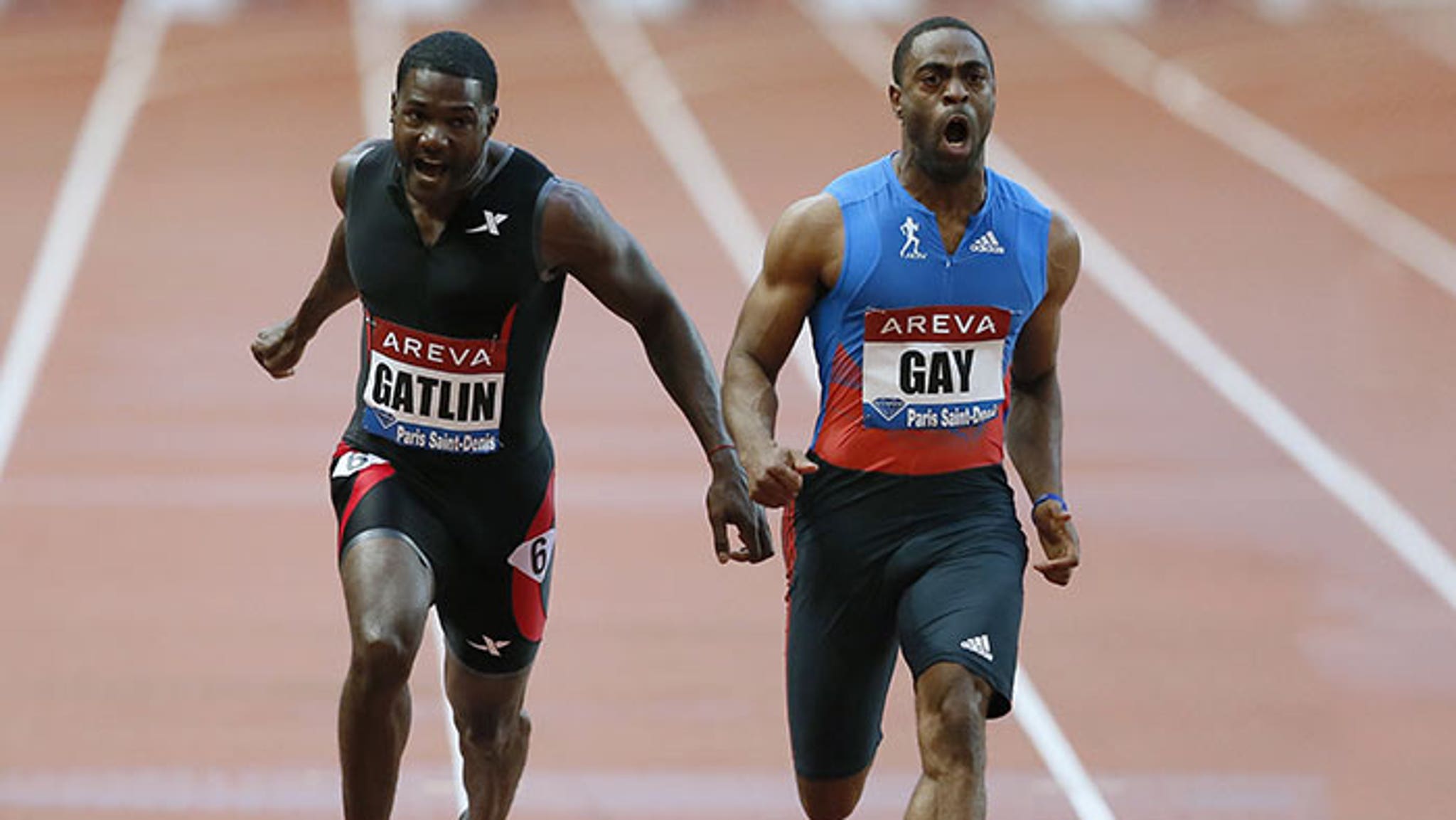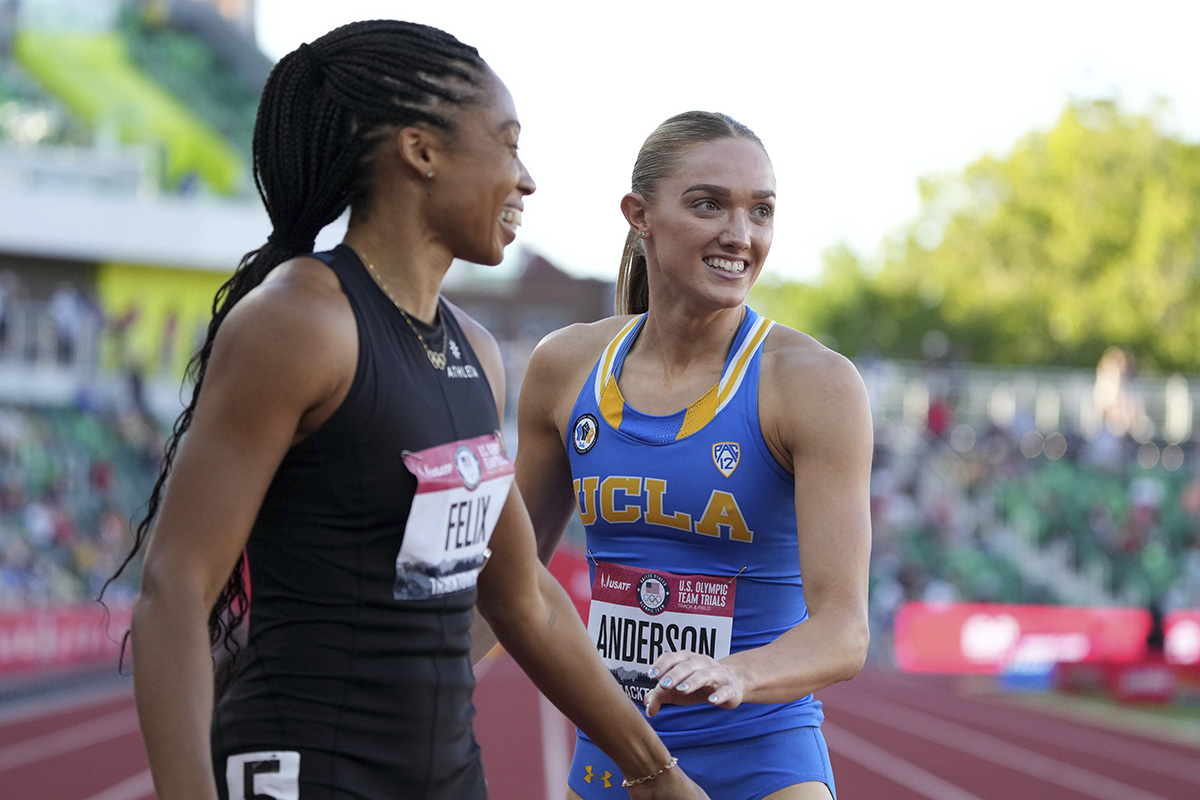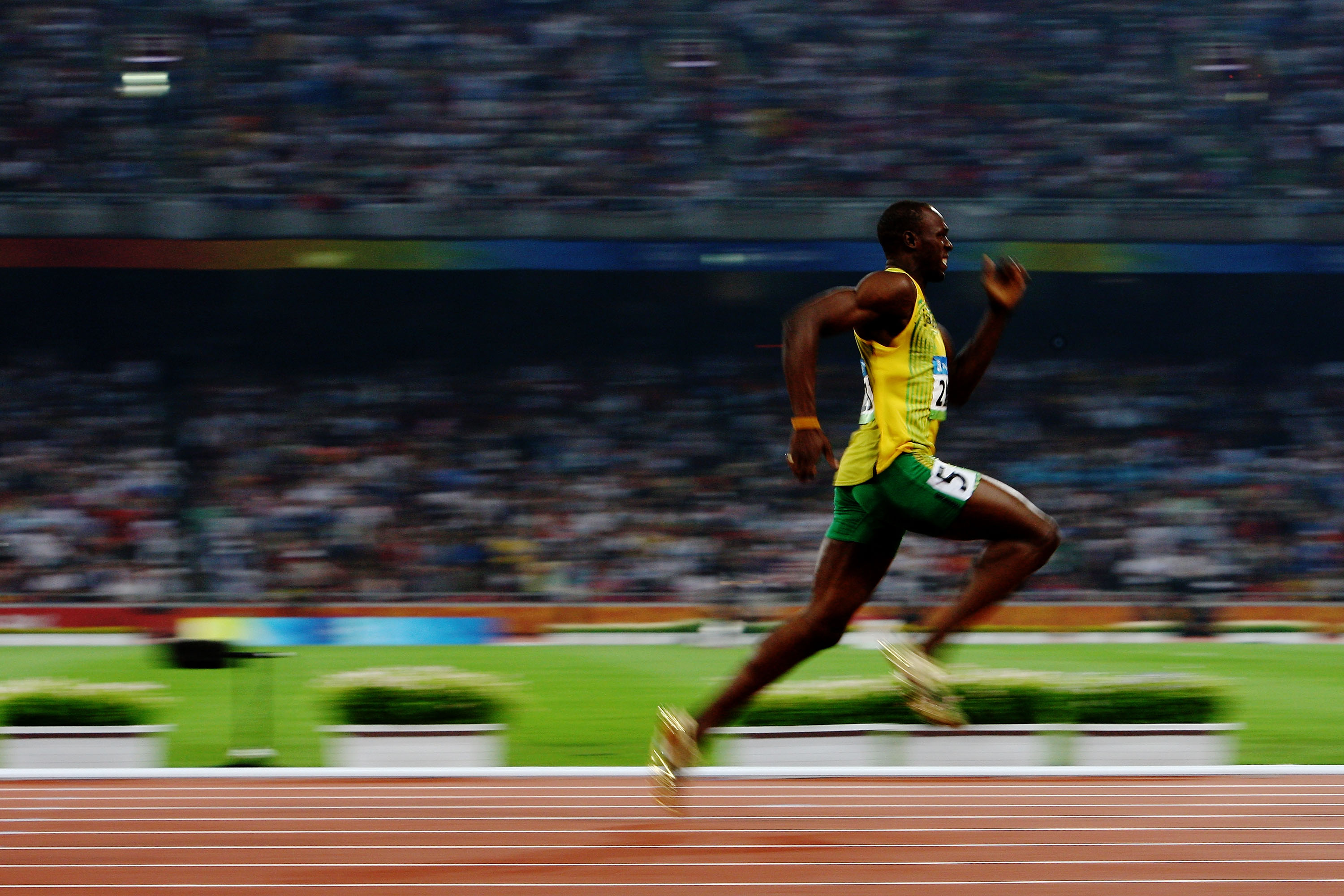How Much Do Olympic Sprinters Make - A Closer Look
Many folks, it seems, often wonder about the money Olympic sprinters bring in. We see these incredible athletes flash across our screens, running so quickly, breaking records, and standing on podiums with shiny medals. It is that kind of spectacle that naturally leads to questions about their financial situations. People often assume that because they are at the top of their athletic pursuit, the money must just flow in, like a river during a heavy rain.
But the truth about how much Olympic sprinters make is, actually, a bit more layered than you might first think. It is not always a straightforward path to immense wealth, even for those who stand out. The journey to becoming a top-tier sprinter requires so much dedication, countless hours of practice, and a significant financial outlay for training, coaches, and proper nutrition. This really means that the money they get needs to cover a lot of things before it can even be considered profit.
This discussion will try to shed some light on the various ways these very fast individuals might earn a living, and what factors can really shift the numbers when we talk about how much Olympic sprinters make. We'll look at the different streams of money that might come their way, and some of the bigger challenges they face in what is, in a way, a very short career for most.
Table of Contents
- Understanding the Earning Potential for Olympic Sprinters
- How Much Do Olympic Sprinters Make From Prize Money?
- Sponsorship Deals - A Big Part of How Much Olympic Sprinters Make
- What About Appearance Fees - How Much Do Olympic Sprinters Make This Way?
- National Funding and Grants - Supporting How Much Olympic Sprinters Make
- Social Media and Personal Branding - Affecting How Much Olympic Sprinters Make
- The Short Career Span and Its Impact on How Much Olympic Sprinters Make
- Challenges and Expenses That Shape How Much Olympic Sprinters Make
Understanding the Earning Potential for Olympic Sprinters
When people think about the earning potential of someone who runs very, very fast, their minds often go straight to the biggest names, the ones who win gold medals and set new records. It is pretty easy to picture them living a life of luxury, isn't it? However, the reality for many, many sprinters, even those who reach the Olympic level, can be quite different. The amount of money they bring in can vary so much, almost wildly, from one athlete to another. It really depends on a whole bunch of things, like their level of success, how famous they become, and even where they come from in the world.
The money a sprinter gets is not just about crossing the finish line first, though that certainly helps a great deal. It is also about their appeal to the wider public, their ability to connect with fans, and their willingness to be a public face for various products or causes. So, you know, it is a mix of athletic skill and a certain amount of public charm, too. A sprinter might be incredibly quick, but if they do not have that extra something that draws people in, their financial picture might not be as bright as someone who is maybe a little slower but has a bigger personality. It is a bit of a balancing act, you see, between raw speed and public appeal.
For some, the money they get might just barely cover their training expenses, especially for those who are just starting out or who are not consistently placing at the very top of big competitions. It is not always a steady stream of cash, either. There are ups and downs, good years and not-so-good years, which can affect how much Olympic sprinters make. This uncertainty is something many athletes in individual sports face, and it makes planning for the future quite a task, to be honest.
- Porn Corinna Kopf
- Alana Cho Onlyfans Leaks
- Luis Rojas Jane Elliott
- Stream Easy
- Brandy And Billy Leaked Video
How Much Do Olympic Sprinters Make From Prize Money?
Prize money is, in a way, one of the most direct forms of payment for a sprinter. When an athlete competes in a major event, like the World Championships or a Diamond League meet, there is often a pot of money set aside for the top finishers. Winning a race, or even placing in the top few spots, can mean a nice sum of cash. For instance, a first-place finish at a big international event could bring in a fair amount of money, while placing lower down the list might mean a much smaller reward, or perhaps none at all. This is where the difference between being a top-tier athlete and just a very good one becomes quite clear, financially speaking.
However, it is important to remember that Olympic Games themselves do not typically award prize money directly from the International Olympic Committee (IOC) for winning a medal. That's actually a common misconception. The glory of the medal is the main prize from the IOC's perspective. Any money associated with an Olympic medal usually comes from a sprinter's home country's Olympic committee or from their national sports organizations. So, a gold medalist from one country might get a substantial bonus, while a gold medalist from another country might get something much smaller, or even nothing beyond the recognition. This means that how much Olympic sprinters make from their ultimate achievements can differ quite a bit depending on their national allegiance.
Also, the opportunities to earn significant prize money are not that frequent. There are only a limited number of very big meets each year that offer substantial financial rewards. A sprinter has to be consistently performing at a very high level to even qualify for these events, let alone win them. This means that for many sprinters, especially those not at the absolute peak of the sport, relying solely on prize money to make a living is simply not possible. It is just one piece of the puzzle when figuring out how much Olympic sprinters make.
Sponsorship Deals - A Big Part of How Much Olympic Sprinters Make
For most top-level sprinters, sponsorship deals are, without question, the biggest source of their money. These deals involve companies paying athletes to wear their gear, use their products, or simply to be the face of their brand. Think about seeing a famous sprinter wearing a specific brand of running shoes or sportswear; that's usually part of a sponsorship agreement. The bigger the name, the more successful the athlete, and the more appealing they are to the public, the larger and more valuable these deals tend to be. This is where the truly large sums of money can come into play, potentially making up a very, very significant portion of how much Olympic sprinters make.
These agreements are not just about shoes and clothes, though. Sprinters might also get deals with food companies, watch makers, car manufacturers, or even technology firms. The range of products they can endorse is pretty wide, actually. The value of these deals is directly tied to the sprinter's visibility and their perceived ability to influence consumers. Winning an Olympic medal, especially a gold one, can instantly boost a sprinter's profile and make them much more attractive to potential sponsors. This sudden rise in fame can, in a way, open doors to much more lucrative arrangements than they had before.
However, securing these big sponsorship deals is a highly competitive business. Companies want to invest in athletes who are not only successful on the track but who also have a clean public image and a strong personal story. A sprinter who faces doping allegations or has other controversies might find it very difficult to attract or keep major sponsors, no matter how fast they are. So, maintaining a good reputation is, you know, quite important for keeping those money streams flowing, and it certainly plays a role in how much Olympic sprinters make.
What About Appearance Fees - How Much Do Olympic Sprinters Make This Way?
Beyond prize money and sponsorships, some of the very top sprinters can also earn money through what are called "appearance fees." This is basically payment for simply showing up and competing at a particular event. Race organizers, especially for big, prestigious meets, might pay a top-tier sprinter a certain amount just to ensure they are on the starting line. Their presence alone helps to draw in crowds and television viewers, which makes the event more valuable to its sponsors and broadcasters. This is a common practice for the biggest stars in the sport, and it can add a fair bit to their overall earnings.
The amount of an appearance fee can vary enormously, depending on the sprinter's status. A world record holder or an Olympic champion will command a much higher fee than someone who is simply a national champion. It is a direct reflection of their star power and the excitement they bring to a competition. For a very, very famous sprinter, an appearance fee for a single race could be quite substantial, sometimes even more than the prize money for winning the event itself. This really highlights how important their drawing power is, in terms of how much Olympic sprinters make.
However, it is important to remember that these fees are typically reserved for a very select group of athletes at the absolute pinnacle of the sport. The vast majority of sprinters, even those who regularly compete at a high level, do not receive appearance fees. They have to rely on prize money and smaller sponsorship deals. So, while appearance fees can be a significant income stream for a few, they are not a common part of how much Olympic sprinters make across the board; it is more of a perk for the truly elite.
National Funding and Grants - Supporting How Much Olympic Sprinters Make
For many sprinters, particularly those who are still developing or who come from countries with strong sports programs, national funding and grants can be a really important source of financial support. Governments, national Olympic committees, or specific sports federations often provide money to athletes to help them cover training costs, travel expenses, and living expenses. This support is usually aimed at helping athletes focus on their sport without having to worry constantly about money, allowing them to reach their full potential. This type of backing is, you know, quite crucial for many athletes, especially when they are not yet earning a lot from other sources.
These grants are typically performance-based, meaning that athletes need to meet certain criteria, like achieving specific qualifying times or placing well in national competitions, to receive the funding. The amount of money can vary widely from country to country. Some nations invest a great deal in their athletic programs, providing very generous stipends, while others offer much more limited support. This means that a sprinter's nationality can actually have a pretty big impact on how much Olympic sprinters make, even before they step onto the world stage.
While this funding is vital for many athletes to sustain their careers, it is generally not enough to make someone rich. It is designed to cover the costs of being an elite athlete, not to provide a luxurious lifestyle. For many, it is simply a way to keep training and competing at a high level while working towards those bigger sponsorship deals or prize money opportunities. So, it is a foundation, in a way, but not usually the whole house when we talk about how much Olympic sprinters make.
Social Media and Personal Branding - Affecting How Much Olympic Sprinters Make
In today's world, a sprinter's presence on social media has become a surprisingly important factor in their overall earning potential. Athletes with a large and engaged following on platforms like Instagram, Twitter, or TikTok can attract brands looking to reach that audience. Companies might pay sprinters to post about their products, share sponsored content, or simply to promote their brand through their personal channels. This is a relatively new income stream compared to traditional sponsorships, but it is one that is growing very, very quickly.
Building a strong personal brand online means more than just having a lot of followers, though. It is also about creating content that resonates with people, showing off a bit of their personality, and connecting with fans in a genuine way. Sprinters who are good at this can turn their online presence into a pretty valuable asset. This can lead to direct payments for posts, affiliate marketing opportunities, or even their own merchandise lines. It is, in some respects, a way for athletes to take more control over their own financial destiny and add to how much Olympic sprinters make.
However, like with traditional sponsorships, maintaining a positive image online is absolutely crucial. One misstep or controversial post can damage a sprinter's brand and scare away potential partners. So, while social media offers a lot of potential for earning, it also comes with its own set of responsibilities and risks. It is a constant balancing act, actually, between being authentic and being commercially viable.
The Short Career Span and Its Impact on How Much Olympic Sprinters Make
One of the often-overlooked aspects of a sprinter's financial picture is the relatively short length of their competitive career. Unlike some professions where people work for many decades, a sprinter's peak performance years are usually quite limited, typically spanning only a few years, perhaps into their late twenties or early thirties. Injuries, the natural aging process, and the emergence of younger, faster talent mean that a sprinter's time at the very top is, in a way, fleeting. This short window of opportunity has a pretty big impact on how much Olympic sprinters make over their lifetime.
Because their earning potential at the highest level is concentrated into such a brief period, sprinters need to make the most of those years. They have to maximize their income through prize money, sponsorships, and appearance fees while they are at their fastest and most marketable. This means that financial planning and making smart choices with their money are very, very important. They cannot just assume that the money will keep coming in indefinitely, because it almost certainly will not. It is a race against time, in a way, to secure their financial future.
This short career span also means that many sprinters have to think about what comes next, even while they are still competing. They might start planning for a second career, investing their earnings, or building connections that will help them transition out of professional athletics. So, the money they make during their sprinting days often has to serve as a foundation for the rest of their lives, which adds another layer of financial pressure and planning to the question of how much Olympic sprinters make.
Challenges and Expenses That Shape How Much Olympic Sprinters Make
It is easy to focus on the big paydays, but the reality for sprinters, even the very successful ones, involves a lot of significant challenges and expenses that can eat into their earnings. The cost of training at an elite level is, you know, pretty high. This includes paying for coaches, physiotherapists, nutritionists, and specialized training facilities. These are not optional extras; they are absolutely essential for a sprinter to stay healthy and perform at their best. These costs are a constant drain on their financial resources, impacting how much Olympic sprinters make in the end.
Travel is another huge expense. Sprinters have to travel all over the world to compete in various meets, to attend training camps in different climates, and to participate in promotional events. Flights, accommodation, and daily living expenses while on the road can add up very, very quickly. For sprinters who are not yet earning large sums from sponsorships or prize money, covering these travel costs can be a real struggle, sometimes even forcing them to miss out on important competitions if they cannot afford to go. It is a pretty big hurdle for many.
Then there is the ever-present risk of injury. A serious injury can sideline a sprinter for months, or even years, cutting off their income streams entirely. During recovery, they are not earning prize money, and their sponsorship deals might be reduced or even canceled if they cannot compete. This financial insecurity means that many sprinters need to have good insurance or a solid financial cushion to fall back on, which again, affects their net earnings. So, the money they bring in often has to account for these potential setbacks, which really shapes how much Olympic sprinters make in the long run.



Detail Author:
- Name : Tiffany Kassulke
- Username : ostrosin
- Email : willis18@bartell.biz
- Birthdate : 1981-08-10
- Address : 1662 Osbaldo Fields Suite 483 East Maxieville, IN 55028-7170
- Phone : +1-680-312-4104
- Company : Kessler-Brekke
- Job : Tractor-Trailer Truck Driver
- Bio : Eum quia numquam laudantium dolorum. Quisquam perspiciatis accusamus deleniti porro. Minima cum vel officia praesentium. Cum itaque ea dignissimos libero. Nisi debitis dolores sed nemo.
Socials
instagram:
- url : https://instagram.com/hosea_kuhic
- username : hosea_kuhic
- bio : Illum harum voluptas vel adipisci similique. Quos quis hic officiis sunt.
- followers : 4989
- following : 1979
linkedin:
- url : https://linkedin.com/in/hkuhic
- username : hkuhic
- bio : Soluta quo ducimus debitis quos.
- followers : 718
- following : 1494
facebook:
- url : https://facebook.com/hosea_official
- username : hosea_official
- bio : Expedita et est voluptates delectus voluptates quae non voluptatem.
- followers : 2719
- following : 833
tiktok:
- url : https://tiktok.com/@hoseakuhic
- username : hoseakuhic
- bio : Nihil sed aperiam debitis est non ipsum.
- followers : 4895
- following : 1309